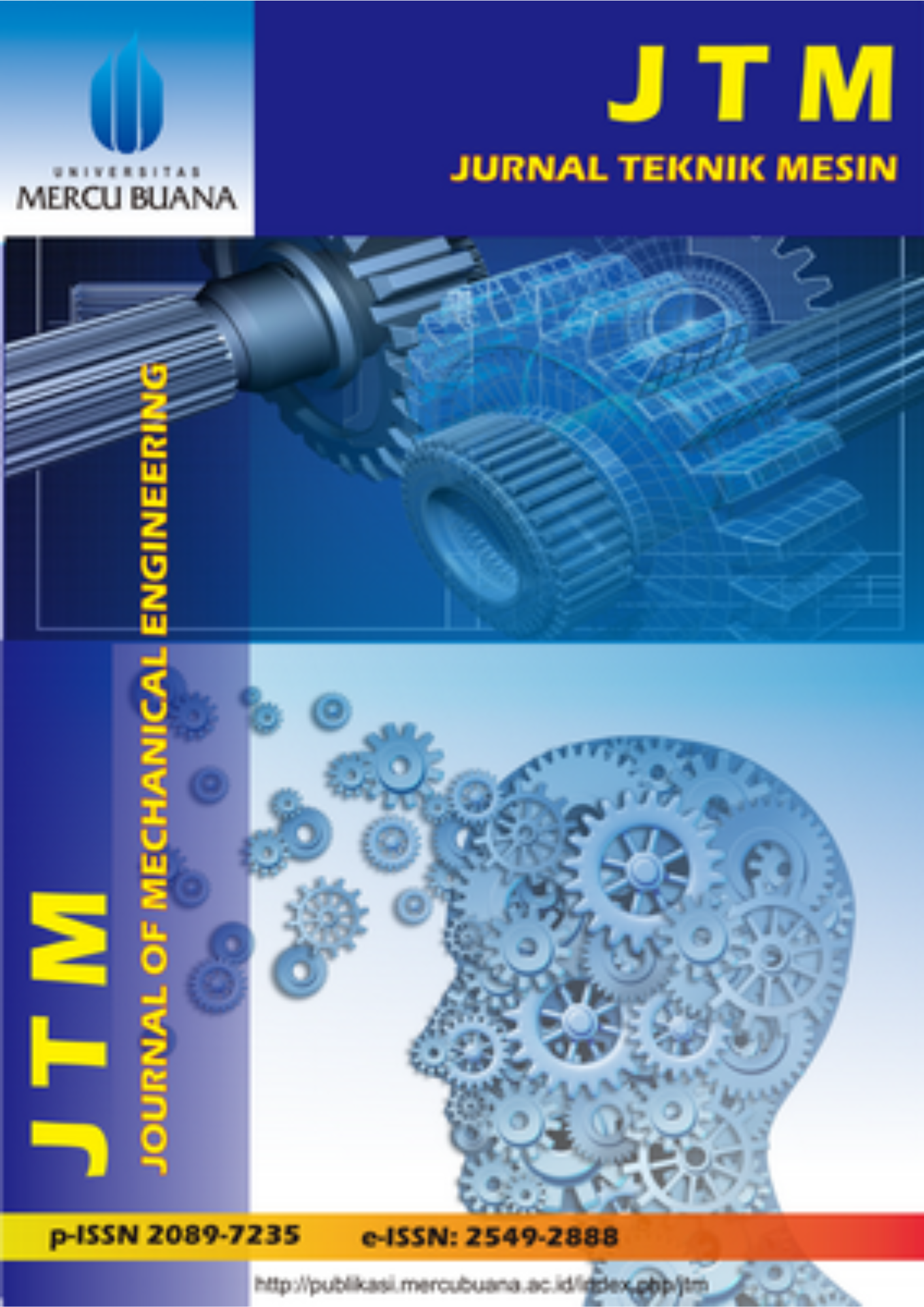Optimization of Working Temperature and Determination of Dross Recycle Soldering Machine Control Type Based on Specific Energy Consumption
Abstract
Keywords
Full Text:
PDFReferences
Holtzer M, Fullerton J. (2015). In House Dross Recovery- Do You Know What You Are Putting Back in Your Solder Bath? Proceedings of the SMTA International Conference. 935–940.
Lucheva B, Tsonev T, Iliev P. (2011). Recycling of lead solder dross, Generated from PCB manufacturing, JOM, vol. 63, no. 8:18–22.
Kaewboonthong P, Bunnaul P, Kooptarnond K, Plookphol T. (2014). Recovery of Metals from Sn-Ag-Cu Solder Alloy Dross. Proceedings of the International Conference on Mining, Material and Metallurgical Engineering. 79.
Nasution H, Jamaluddin H, Syeriff J. (2011). Energy analysis for air conditioning system using fuzzy logic controller,” Telkomnika. 9(1): 139–150.
Godina R, Rodrigues E, Pouresmaeil E, Catalão J. (2018). Optimal residential model predictive control energy management performance with PV microgeneration. Comput Oper Res. 96: 143–156.
Kassai M, Kajtar L, Nyers J. (2019). Experimental optimization of energy consumption for direct current refrigerator by PID controller tuning and comparison with ON/OFF refrigerator. Thermal Science. 23(2): 941–952.
Shahir A, Mokhtar B, Oktaviandri M. (2022). PID Controller for Optimum Energy Efficiency in Air-Conditioner. International Journal of Electrical, Energy and Power System Engineering (IJEEPSE). 5(1): 24-29.
Ulpiani G, Borgognoni M, Romagnoli A, di Perna C. (2016). Comparing the performance of on/off, PID and fuzzy controllers applied to the heating system of an energy-efficient building. Energy Build. 116: 1–17.
Faizin K. (2022). ANALISIS KONSUMSI DAN PELUANG PENGHEMATAN BAHAN BAKAR GENERATOR PESAWAT UDARA SELAMA PEMELIHARAAN. Universitas Mercu Buana: Jakarta
Lawrence A, Thollander P, Andrei M, Karlsson M. (2019). Specific energy consumption/use (SEC) in energy management for improving energy efficiency in industry: Meaning, usage and differences. Energies (Basel). 12(2): 247.
DOI: http://dx.doi.org/10.22441/jtm.v14i1.18839
Refbacks
- There are currently no refbacks.
Copyright (c) 2025 Jurnal Teknik Mesin
Jurnal Teknik Mesin (JTM)
Program Studi Teknik Mesin, Fakultas Teknik, Universitas Mercu Buana
Jl. Meruya Selatan No. 01, Kembangan, Jakarta Barat 11650, Indonesia
Email: [email protected]
Telp.: 021-5840815/ 021-5840816 (Hunting)
Fax.: 021-5871335
JTM is indexed by the following abstracting and indexing services:

This work is licensed under a Creative Commons Attribution-NonCommercial 4.0 International License.






.png)







_(486_x_90_px)_(486_x_190_px)_(486_x_190_px)_(4).png)
_(486_x_90_px)_(486_x_190_px)_(486_x_190_px)_(5).png)
2.png)
.png)